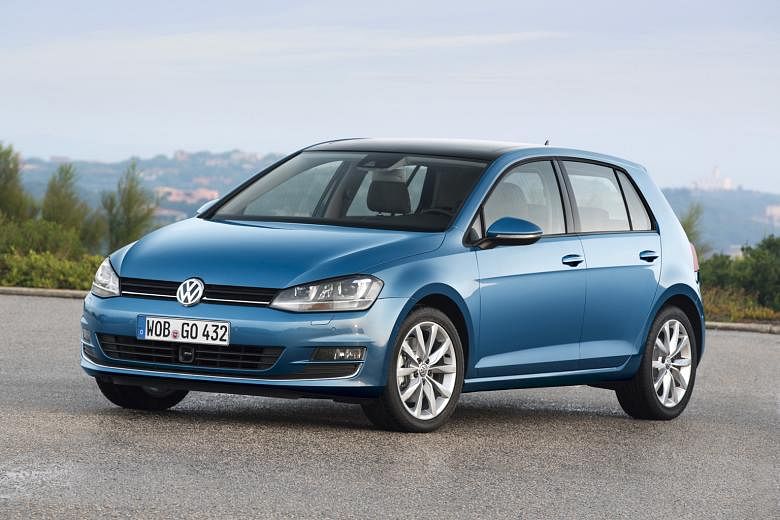Is this the right time to buy a car? Before the Monetary Authority of Singapore decided to ease car loan curbs and before the sudden boom in the private-hire industry, the answer to that question would have been quite clear.
But now, it seems all bets are off, with COE prices looking like they will remain buoyant for several more months.
So, if you have been planning to buy a car, you might now have to put that on hold for the time being. Or do you?
First of all, your buying decision should not be governed by COE prices alone. Sure, COE is a substantial portion of the car price, but if you look at the lifetime ownership cost of a car, the COE component becomes far less significant.
Even at $70,000, a certificate of entitlement would translate to about 30 per cent of the cost of a Toyota Corolla Altis over its lifetime.

That is based on current HDB parking charges, which would total up to $10,800 over 10 years, fuel cost of $40,000, an optimistic repair and maintenance bill of $10,000 over 10 years, and ERP expenditure of $4,800.
You are likely to incur higher charges than those cited above (parking elsewhere is not factored in, for instance), but even at those rates, you will tally up operating expenses of $84,100 - more than the $70,000 COE.
Now, the COE is currently hovering at around $50,000 - down from a high of $90,000 just more than three years ago. The current price of a Corolla starts from about $118,000. Which means the COE portion today works out to be 25 per cent of the total ownership cost of the car.
Not really worth the angst, is it?
So, when people ask me whether they should buy a car now, I always shrug and say: "It depends."
Because it really depends - on a whole host of factors which vary from one individual to the next.
What is your financial situation now and in the foreseeable future? How geared are you? Do you really need a car? Can you do better things with the money?
On that last question, it is interesting to note that you will have at least $500,000 more in your retirement fund if you did not drive.
That is based on just three 1.6-litre Japanese cars a person owns in his working life. Based on prevailing prices, the total outlay for those three cars - including operating expenses - would come up to no less than $600,000.
Now, if you took public transport, a family of four making four trips a day would spend about $60,000 over 10 years, or $180,000 over 30 years. Again, for simplicity's sake, we do not factor in inflation or the value of time (moving around on public transport takes about three times longer than driving).
So, if you subtract the cost of public transport from the cost of motoring over 30 years, you will get $420,000.
Now, if you had to put aside the extra money in an investment with the most dismal returns (insurance, for instance), you would easily have $500,000 more for your retirement.
Of course, it is hard to assign a monetary value to the freedom, privacy and comfort of having a car. It is like saying you would save a bundle if you lived in a three-room HDB flat instead of that shoebox condominium.
What if you already have a car and are wondering whether it is better to trade it in for a new model now? The guiding principle should always be whether the prevailing COE premium is higher or lower than the one you paid for your current car.
If it is higher, you are better off sticking to your current car. If it is lower, you can consider trading in.
Do not be swayed by the salesman's favourite pitch, which is "if you wait, your current car will be worth even less".
That is a fool's argument. Because if you gave up your "low COE" car for one with with a higher COE, you would have given up enjoying a more economical asset for an inflated one.
But people are irrational. They see a shiny new car and they make all kinds of excuses to buy it. Just like those who rushed in when the MAS eased its car loan rules in May.
They have helped push up COE prices by close to $8,000 in just one month. So, a VW Golf 1.2 cost $99,800 before the MAS change, and $107,300 as at July 7.
Before the change, a buyer had to make a downpayment of $39,920. On Thursday, the downpayment was $32,190. Hardly a significant drop.
Previously, the Golf 1.2 buyer would have incurred $67,365 in instalment charges over five years (based on 2.5 per cent interest rate).
Now, the same buyer will incur $88,254 in instalment charges over seven years (the new allowable maximum tenure).
In total, buyers like him who rushed in end up paying $13,159 more - enough for a week-long holiday to the United States for four people. That does not make much economic sense.
Then again, the smell of fresh leather and the glimmer of fresh enamel do not always gel with economics.
So, is it the right time to buy a car now? It depends. Are you the sort driven by your head or your heart?


